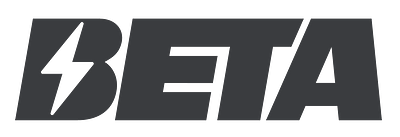
Electrical Design and Verification Engineer – Aircraft Monitoring System | Controls Electronics
Apply now
Please let BETA TECHNOLOGIES know you found this job on Work in Green. This will help us grow!
Employment type:
Full time
Experience required:
Intermediate
Salary
Salary not provided
About the company:
BETA Technologies is creating an electric transportation ecosystem that’s safe, reliable and sustainable. A relentlessly focused team is building an extensive charging infrastructure and ALIA, the world’s most technologically advanced electric vertical aircraft (EVA).
BETA’s platform and products are strikingly simple. Prioritization of safety and a pragmatic approach to certification drive elegant redundancy, appropriate diversity of implementation and simplicity of control. ALIA’s fixed-pitch propellers and centrally located batteries make it an inherently stable aircraft that is safe to fly and easy to maneuver.
BETA’s platform and products are strikingly simple. Prioritization of safety and a pragmatic approach to certification drive elegant redundancy, appropriate diversity of implementation and simplicity of control. ALIA’s fixed-pitch propellers and centrally located batteries make it an inherently stable aircraft that is safe to fly and easy to maneuver.
At BETA Technologies, we apply our intellectual curiosity, passion for aviation, and commitment to sustainability toward a shared mission of revolutionizing electric aviation. Regardless of the position one holds, each team member brings their talent and desire to positively impact the environment and lives of others in a refreshing, vibrant, and inclusive culture.
Join Beta’s Aircraft Monitoring System (AMS) team to design, build, and verify the instrumentation and electronics that monitor the health and performance of our electric aircraft. This role blends PCB/hardware design with system-level verification and certification support in a combined design and verification role. You will take compact, flight‑worthy circuits from concept through layout, bring-up, and qualification. This role will develop automated tests, HIL benches, and certification-ready documentation aligned to ARP4754A development process and DO‑160 environmental qualifications.
In addition to hardware design and verification, candidates may write embedded software on AMS boards and build internal tools in Python, LabVIEW or Matlab, depending on an applicant's experience. A key part of the job is creating test hardware/software and calibration strategies that scale into long-term, post–Type Certification support for commercial products.
Build electric airplanes with us!
We encourage all driven candidates to apply, even if they do not meet every listed qualification.
We are an equal opportunity employer. Employment decisions are based on merit, competence and qualifications and will not be influenced in any manner on race, color, religion, age, sex, sexual orientation, gender identity, national origin, ancestry, citizenship, disability, veteran or military status, genetic information, pregnancy, or any other protected characteristic under federal, state, or local law. BETA complies with all applicable federal, state and local non-discrimination laws and does not tolerate discrimination of any kind in our workplace.
Employment offers are contingent upon the successful completion of a background check. BETA Technologies participates in E-Verify.
How you will contribute to revolutionizing electric aviation:
Minimum Qualifications:
Above and Beyond Qualifications:
Physical Demands and Work Environment:
Similar climate jobs
These are some of our top picks for great climate jobs on Work in Green.

United States

United States

United States

United States

United States

United States
772 Transportation jobs at BETA TECHNOLOGIES
BETA TECHNOLOGIES is hiring IT Director | Helpdesk,IT Support | Helpdesk (Entry Level),Manufacturing Technician WEEKENDS, and more.

USA

USA

USA

USA

USA